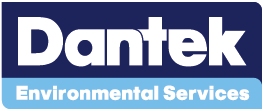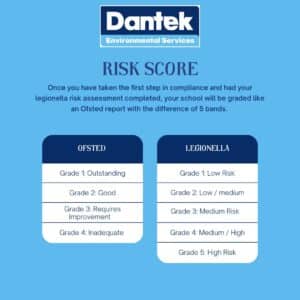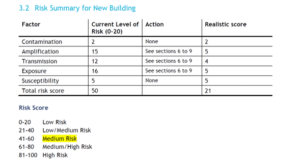Determining Fair Pricing for Legionella Risk Assessments in the Hospitality Industry
Maintaining compliance while upholding quality and service standards remains paramount for businesses in the hospitality sector. Whether you’re managing a hotel, restaurant, or any other establishment, ensuring Legionella risk assessments are conducted at fair prices without compromising on efficacy is crucial. This blog aims to provide insights tailored to the hospitality industry, helping you make informed decisions when seeking Legionella risk assessment services.
A good starting point for finding reliable Legionella risk assessment providers is the Legionella Control Association (LCA) website. By browsing through the directory of approved contractors on the LCA website, you can identify reputable suppliers who adhere to stringent standards in Legionella bacteria control for water systems.
Legionella risk assessments typically involve consultancy services that require on-site visits and the subsequent generation of detailed reports. To obtain accurate pricing, contractors usually assess the time required to complete the assessment and generate the report. This assessment is based on a predetermined day rate, which varies depending on factors such as the complexity of the site and geographical location.
Several factors influence the cost of Legionella risk assessments:
Geographical Location: The location of your establishment affects travel time, which is factored into the overall cost. While choosing local contractors may be advantageous for single or nearby sites, opting for contractors from outside your area could lead to cost savings, especially for franchises and chains.
Complexity of Water Systems: The complexity of your water assets and systems impacts the duration of the assessment. Providing comprehensive information about your establishment, including system intricacies, enables contractors to provide accurate estimates. All water assets, from domestic systems to specialized equipment, should be included in the assessment.
Practical Outputs: Beyond ensuring compliance, Legionella risk assessments offer valuable insights into your water assets. Discussing practical outputs with suppliers, such as reporting formats for non-compliances, schematic drawings, electronic asset registers, and integration with existing building schematics, can enhance the utility of the assessment.
Understanding the estimated duration of the assessment and the quality of the resulting report is essential for hospitality businesses. Industry rates typically range from £350.00 to £600.00 per day for qualified Legionella risk assessors. Engaging in transparent discussions with suppliers regarding assessment duration fosters transparency and ensures alignment of expectations.
Whether your establishment is equipped with large plant items like calorifiers and tanks or operates without them, we offer comprehensive Legionella risk assessments tailored to your specific needs. Our surveys address the unique requirements of establishments of all sizes, ensuring thorough analysis and compliance with regulatory guidelines.
Our assessments are designed to ensure compliance with regulatory standards, including the Health and Safety Executive’s Legionella approved code of practice and guidance document ACoP L8 & HSG274.
Dantek’s Legionella Risk Assessment encompasses various critical components, including a full asset register, detailed system schematics, photographic documentation, and comprehensive recommendations for remedial and monitoring tasks. Our assessments are fully compliant with BS8580 standards, providing you with a thorough understanding of your water system’s risk profile and necessary actions for compliance.
Our team can also assist with the development and implementation of a Written Scheme of Control, essential for maintaining safe water systems on-site. Please refer to appendix 2.2, page 55, of the HSG274 part 2 for a summary of the requirements of a written scheme: https://www.hse.gov.uk/pubns/priced/hsg274part2.pdf
Additionally, we provide a Lite version of the Legionella Risk Assessment designed specifically for sites in the hospitality sector that do not have significant plant items. This streamlined assessment process is particularly valuable for locations with mains-fed systems, offering efficient compliance with regulatory standards while acknowledging the unique characteristics of every business.
By leveraging reputable resources and engaging in transparent discussions with suppliers, hospitality businesses can secure fair pricing for Legionella risk assessments without compromising on quality and compliance.
For further inquiries or assistance, please don’t hesitate to contact our sales team at 01454 417920 or via email at sales@dantek.co.uk.

 Managing Legionella Safety in the Sports Industry requires a systematic and tailored approach. With our custom-written scheme of control template, you can streamline your Legionella risk management efforts, ensuring compliance and effective risk mitigation. Remember, it is crucial for the statutory duty holder and responsible person to review and personalize the document to align with your organization’s practices. Take advantage of this valuable resource and proactively protect the health and well-being of all individuals within your facility and ensure the highest standards of legionella safety in the sports industry.
Managing Legionella Safety in the Sports Industry requires a systematic and tailored approach. With our custom-written scheme of control template, you can streamline your Legionella risk management efforts, ensuring compliance and effective risk mitigation. Remember, it is crucial for the statutory duty holder and responsible person to review and personalize the document to align with your organization’s practices. Take advantage of this valuable resource and proactively protect the health and well-being of all individuals within your facility and ensure the highest standards of legionella safety in the sports industry.

 Top 5 problems with legionella risk assessments!
Top 5 problems with legionella risk assessments!



 Contact us for more information or to book a free demonstration.
Contact us for more information or to book a free demonstration. Our website is a great tool for local services, FAQs, sectors, and price guides. please visit
Our website is a great tool for local services, FAQs, sectors, and price guides. please visit